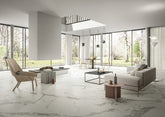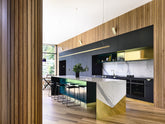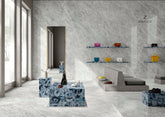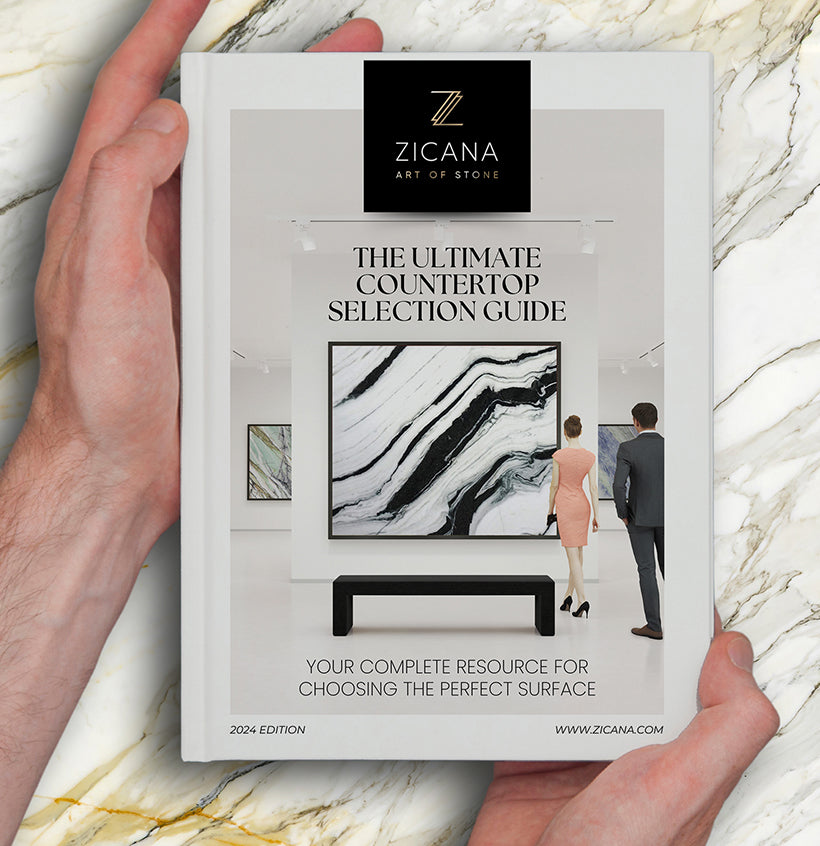Dekton vs Porcelain: An Expert Guide for Homeowners & Professionals
When choosing the right surface for high-end residential or commercial design, two modern materials dominate the conversation: Dekton and porcelain. Both offer sleek aesthetics, durability, and low maintenance. However, their differences—ranging from composition and strength to design flexibility—are critical for homeowners and trade professionals alike to understand. Whether you’re redesigning a chef-style kitchen, curating a spa-retreat bathroom, or specifying surfaces for a luxury hospitality project, this guide breaks down everything you need to know about dekton vs porcelain.
What Is Dekton?
Dekton is a cutting-edge ultracompact surface made by Cosentino. It's composed of a sophisticated blend of raw materials used to produce glass, porcelain, and quartz surfaces. During production, particles are sintered together using a high-heat, high-pressure process known as Particle Sintering Technology, resulting in a virtually non-porous, incredibly hard surface.
Its density and durability make Dekton ideal for demanding applications, from kitchen countertops to exterior cladding. It resists heat, scratches, UV rays, and stains, requiring no sealing throughout its lifetime. For luxury projects where longevity and resilience are paramount, Dekton shines.
What Is Porcelain?
Porcelain, on the other hand, is a ceramic material fired at high temperatures using refined clay. Today’s porcelain slabs are engineered to surpass traditional ceramics, offering greater impact resistance, ultra-elegant design possibilities (including marble-look finishes), and better performance for both interior and exterior spaces.
Zicana Boutique curates a world-class array of high-performance porcelain slabs, including the Raphael Porcelain Collection and exclusive lines from Fiandre, Florim, and Laminam. Explore current deals in our Exclusive Offers Collection.
Key Differences Between Dekton and Porcelain
At first glance, these innovative surfaces may appear similar, but key differences impact performance and design versatility:
- Composition: While both are sintered, Dekton integrates quartz, glass, and porcelain materials, while porcelain is a ceramic-based composite.
- Thickness Options: Dekton is available in thicker profiles (up to 30mm), ideal for mitered edges and waterfall counters. Porcelain typically comes in ultra-thin slabs, often 6mm to 12mm.
- Thermal Resistance: Dekton excels with superior resistance to thermal shock, making it better for high-heat zones like outdoor kitchens or fireplace surrounds.
- Design Consistency: Porcelain slabs feature digitally printed patterns for consistent veining and color. Dekton’s designs are slightly more varied, echoing natural stone.
- Ease of Fabrication: Porcelain can be more brittle to work with due to thinness; Dekton may require specialized cutting equipment due to its density.
Where to Use Each Material
Choosing between Dekton and porcelain often comes down to the project type and stylistic goals. Here’s how each material performs in different applications:
- Kitchen Countertops: Dekton’s thermal resistance and toughness make it excellent for high-use kitchens. Porcelain suits modern, refined kitchens where minimal seam lines are desired.
- Bathroom Walls and Vanities: Both materials perform superbly here, though porcelain's large-format slabs and light weight are ideal for vertical applications.
- Outdoor Use: Dekton handles direct UV and climate shifts extremely well. Porcelain performs well too, but thinner slabs may require more structural support.
- Fireplaces and Feature Walls: For dramatic bookmatched designs with heat resistance, both materials are viable. Pair your surface with a piece from our stunning Fireplace Collection.
Aesthetics: Style Meets Performance
Dekton and porcelain both excel in mimicking natural materials like marble and slate. However, Dekton designs tend to be deeper, with a more organic feel due to its manufacturing method. Porcelain offers consistency ideal for achieving modern, minimalist aesthetics.
Homeowners looking to complement stone accents, such as those found in our Marble Slabs Collection or Quartzite Slabs Collection, often gravitate toward porcelain for color harmony. For more visual drama, Dekton’s expressive veining and textural finishes—like velvet or matte—create architectural substance.
FAQs: Choosing Between Dekton and Porcelain
Is Dekton more durable than porcelain?
Yes. Dekton tends to outperform porcelain in hardness and thermal resistance due to its ultracompact manufacturing process. This makes it ideal for high-traffic or high-heat areas. However, porcelain still offers outstanding durability when properly installed.
Which material is better for kitchen countertops?
For a highly functional kitchen where heat, spills, and knife damage are concerns, Dekton is often the superior choice. Porcelain shines in sleek designs emphasizing lightness and modernity, especially when you prefer large slab coverage with fewer seams.
Are both surfaces stain-resistant?
Absolutely. Both porcelain and Dekton are non-porous, making them resistant to staining and etching from substances like wine, oils, and citrus. Neither requires sealing, making them ideal for low-maintenance luxury living.
Can I use Dekton or porcelain for outdoor countertops?
Yes, both materials are UV-resistant and weatherproof. Dekton’s extreme hardness makes it particularly well-suited for outdoor kitchens and façades. Porcelain is also a strong candidate, especially in protected outdoor installations.
Final Thoughts: Making the Right Investment
When comparing dekton vs porcelain, both surfaces offer remarkable benefits rooted in modern technology and architectural elegance. The best choice depends on your project goals, aesthetic preferences, and functional requirements. Whether you're curating a bold focal point or aiming for timeless restraint, Zicana Boutique offers unmatched expertise and an extensive selection of premium slabs.
Take advantage of our promo code WELCOME100 for $100 off any order over $1,000, applicable to all premium surfaces including porcelain, sintered stone, and quartz collections.
Ready to elevate your space? Browse our exquisite Porcelain Slabs Collection and explore currently featured deals in our Exclusive Offers Collection. Need personalized guidance from a surface expert? Contact our concierge team for a one-on-one consultation or learn how to bring your vision to life with Made-to-Measure Custom Countertops.



















